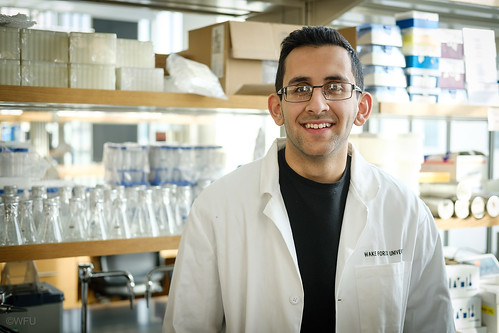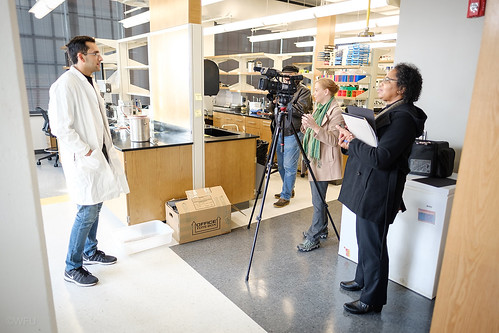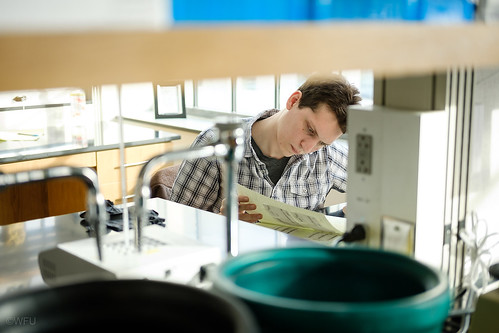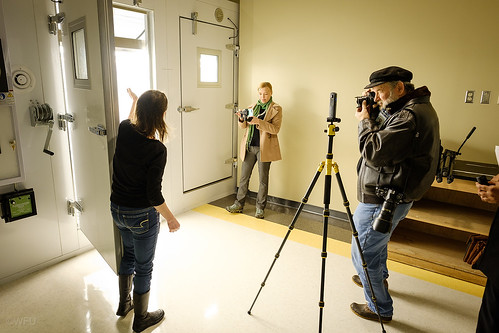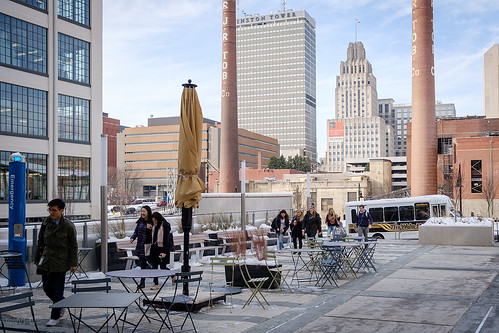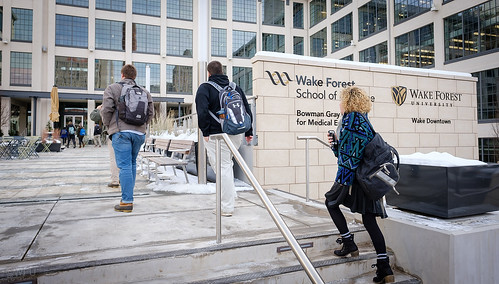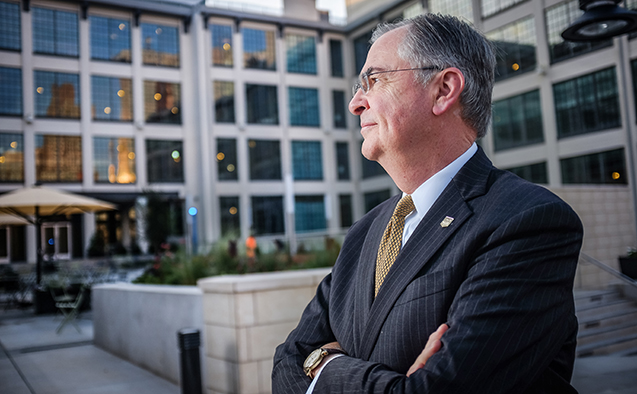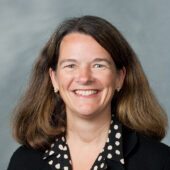Classes begin at Wake Downtown, Wake Forest’s urban campus
When Jorge Dabdoub arrived at Wake Downtown for the first day of classes, he crossed the snow-edged courtyard, walked in the front doors and up the stairs to the sunlit research lab on the second floor where he will continue his work to better understand enzymes related to cystic fibrosis.
“I love the larger spaces with natural light,” said Dabdoub, who is a junior from New London, Conn.
“I am excited about the new lab space, the study areas and the possibilities for interacting with medical students and faculty.” Jorge Dabdoub '18
The start of classes marks a historic moment in the life of the University where for the first time medical school and undergraduate student education will occur together under one roof, enhancing closer collaboration and deeper engagement for students and faculty alike.
Dabdoub is among about 275 undergraduate students starting classes today at Wake Downtown, a 115,000 square-foot, STEM-centric urban campus in Winston-Salem’s fast-growing Innovation Quarter. As a biochemistry and molecular biology major, his 11 a.m. biochemistry class is the first of many he will take in the space that has been transformed from an old tobacco factory into a place for medicinal chemistry, drug discovery and engineering labs.
Take a look inside the first class at Wake Downtown. These students at Wake Forest University in Winston-Salem, N.C. are part of the first Wake Downtown cohort. – Spherical Image – RICOH THETA
Rebecca Alexander, chemistry professor & director of academic programs at Wake Downtown, teaches her first biochemistry class in the new facility.
Lindsay Comstock-Ferguson, associate professor of chemistry, will teach biochemistry labs in the building. She is excited about new technology and flexible classrooms. “The classrooms are designed to allow students to work and learn in small groups,” she said. “We have acquired new spectrophotometers to allow biochemistry students the opportunity to perform experiments in a way they haven’t been able to before.”
Wake Forest is complementing STEM offerings at Wake Downtown with liberal arts courses. Eighteen classes — a mix of science courses, labs, seminars, and classes in history and entrepreneurship — all start this week.
See images of Wake Downtown on its first day. Students at Wake Forest University in Winston-Salem, N.C. begin classes on Jan. 10, 2017. #WakeDowntown #WFU – Spherical Image – RICOH THETA
Biology graduate student Fadi Marayati works in a Wake Downtown lab.
“Seventy-percent of the reason I chose the class is because I wanted to be downtown,” said Lindsay Moran, a freshman enrolled in the first-year seminar “The Analytical Methods of Sherlock Holmes.”
Moran doesn’t know yet what her major will be, but she is glad there are opportunities for students with any major to study downtown.
Professor of Chemistry and Dean of the Graduate School Bradley T. Jones, who teaches the Sherlock Holmes course, sees the potential for Wake Downtown to combine the arts and sciences in a way that is unique to Wake Forest. “A biomedical science/medical education building located in the arts district of Winston-Salem is truly groundbreaking.”
Jones said this is an ideal setting for his class. “Sherlock Holmes could identify at a glance more than 100 varieties of tobacco and ash found at crime scenes,” he said. “Our class will reenact this activity in a renovated tobacco factory.” He also plans to take his students to a screening of “The Hound of the Baskervilles” at a downtown theater.
Art history major Jaime Fashimpaur, a junior from Lexington, N.C., also took the 10-minute shuttle ride from the Reynolda Campus to see the new space. She is enrolled in a historic preservation class, which will take advantage of the historic Wake Downtown setting in a property originally built in the early 1900s.
“Students should understand the opportunities go beyond the sciences,” Fashimpaur said.
Wake Downtown Media Coverage
- Wake Forest University Marks Milestone with Opening of Downtown Campus – Time Warner Cable News
- Classes start at Wake Downtown in the Innovation Quarter – Winston-Salem Journal
- Downtown A-WAKE-ening – Winston-Salem Monthly
- Innovation Quarter a ‘game changer’ for Winston-Salem – Fox 8 News

